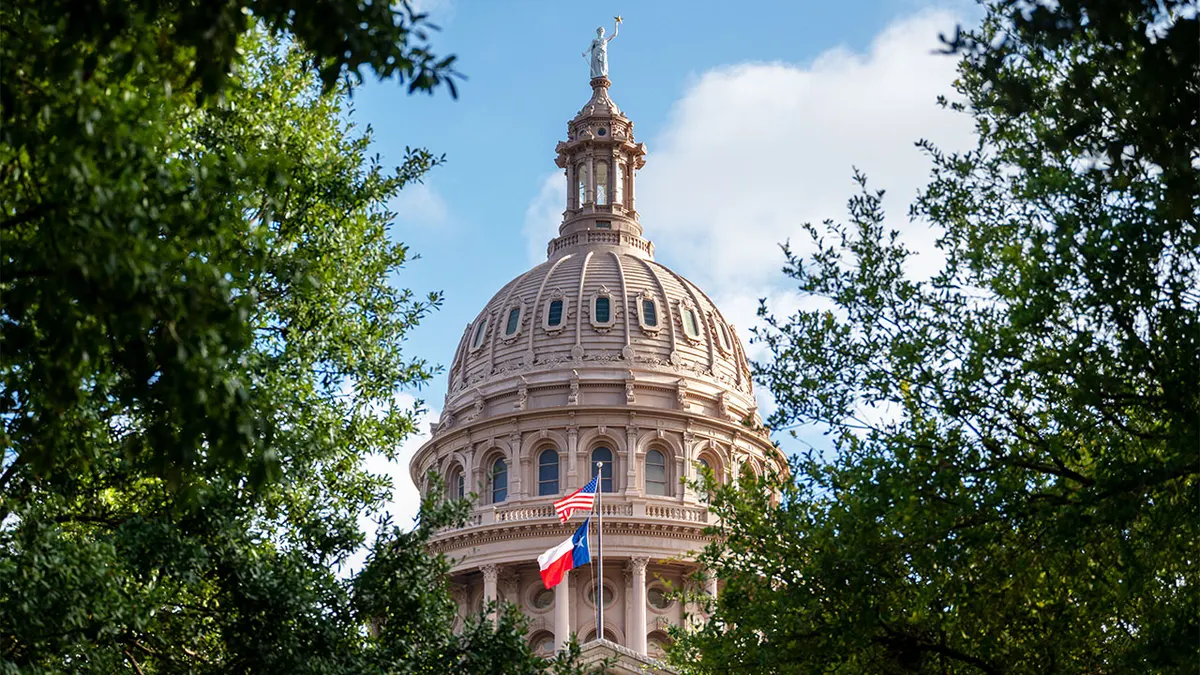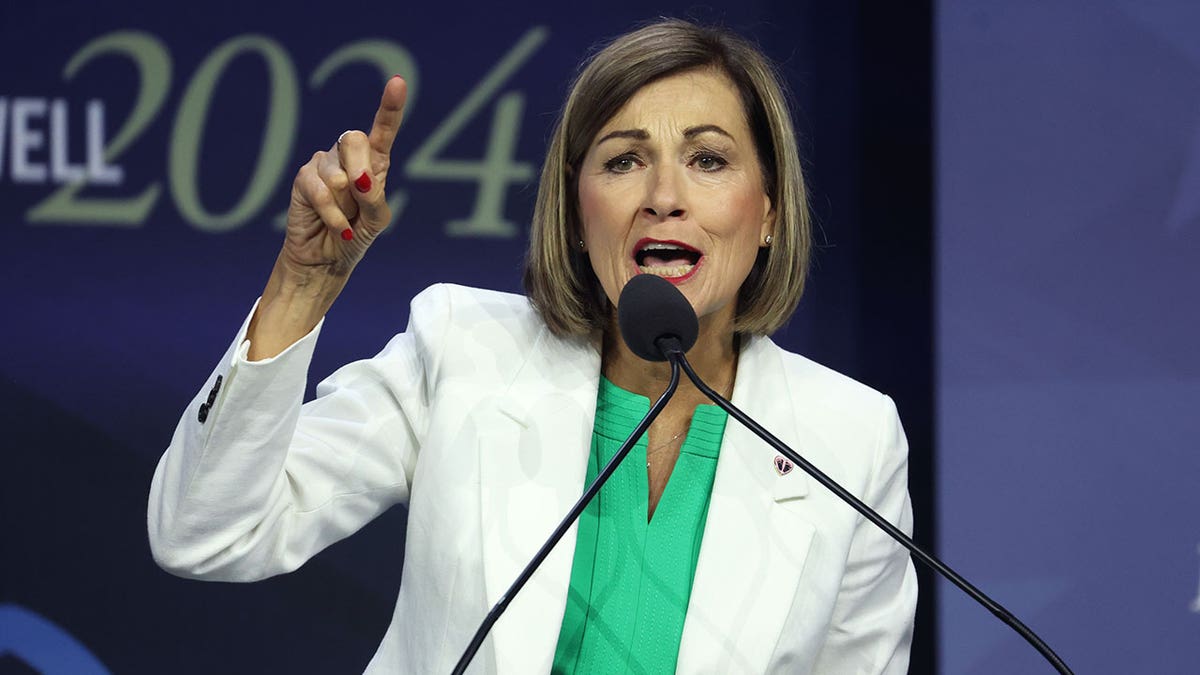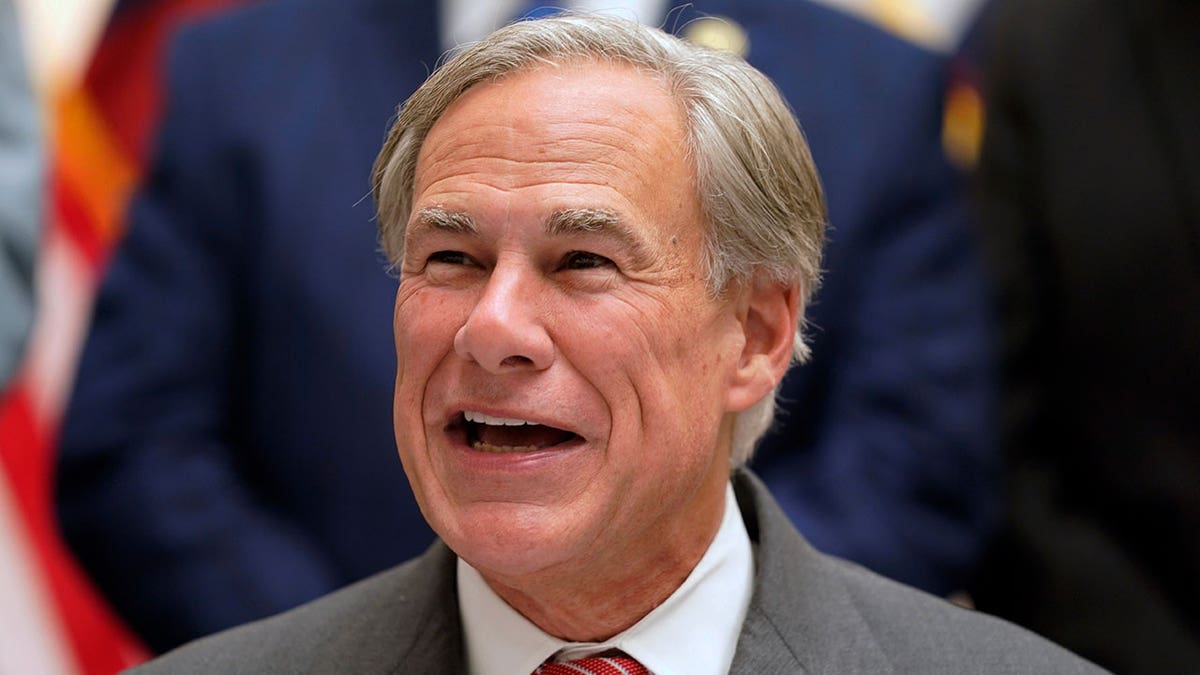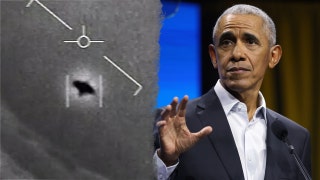Corey DeAngelis on school choice 'revolution': Teacher unions must be 'terrified'
American Federation For Children Senior Fellow Corey DeAngelis told Fox News Digital that a school choice revolution has ignited, highlighting the states that passed universal school choice this past year.
Texas primary elections on Tuesday highlight school choice as a key issue after the Lone Star state struggled to pass legislation.
Nine Republican incumbents lost their elections and eight more were pushed into runoffs on Tuesday. Considering the defeat of certain incumbents, the primary election favored Republican candidates who pushed for school choice.
"This election was a total bloodbath and a mandate for school choice in Texas," American Federation For Children (AFC) Senior Fellow Corey DeAngelis told Fox News Digital.
He added that the primary results indicate the "biggest political shift towards school choice in Texas history."
"School choice was the main dividing line in all of these races. It is already sending shockwaves all across the country and the message is clear: education freedom is a political winner and a GOP litmus-test issue. 10 of the 13 incumbents (77%) challenged by my organization's school choice super PAC either lost outright or were forced to runoffs," DeAngelis said.

The exterior of the Texas State Capitol is seen on September 05, 2023 in Austin, Texas. (Brandon Bell/Getty Images)
"Money helps, but it didn't save anti-school choice 8-year incumbent Hugh Shine. He outspent a local mom, Hillary Hickland, by 6 to 1 and lost by about 14 points in a four-way primary."
The American Federation For Children in September 2023 launched a super PAC to support candidates who "champion school choice."
The super PAC opposed 17 GOP House incumbents who helped block the ESA program pushed by Abbott.
Six incumbents with a track record of rejecting school choice lost their elections and four will face their challengers in runoffs.
The primary runoff election will occur on May 28.
URBAN CHARTER SCHOOLS BODE SUCCESS FOR LOW-INCOME, NON-WHITES, COLLEGE ENROLLMENT: REPORT
School choice policies provide parents with alternatives to the public schools they’re zoned for.
The primary results come after a recent report showing donations from teachers' unions supporting Republicans who previously rejected school choice measures.
Ahead of primary election day on March 5th, the Texas American Federation of Teachers announced their endorsements. All 77 of the candidates endorsed by the union are Democrats.
Among the factors in their endorsement is supporting candidates whose platforms are a "rejection of privatization efforts, whether through vouchers or charters" and "fully funded public schools."
Teachers unions typically lobby against school choice because they claim it siphons off taxpayer funding that is being allocated into other educational options and instead could be used to boost teachers' salaries, invest in public school facilities, and recruit more teachers.

Iowa Governor Kim Reynolds speaks at the Family Leadership Summit on July 14, 2023 in Des Moines, Iowa. (Scott Olson/Getty Images)
Although the teachers' unions publicly endorse Democrats, they have shown support for Republicans with a track record of voting against school choice measures.
Campaign finance reports posted by Corey DeAngelis on X show that the Texas AFT donated $25,000 to the PAC "Defend Rural Texas PAC."
The PAC contributed to two Republican lawmakers, state Representatives DeWayne Burns and Ernest Bailes who voted against school choice measures.
Their primary challengers are supporters of school choice.
GOP candidate Helen Kerwin who will face 10-year incumbent DeWayne Burns in a runoff election in a bid to take House District 58, was endorsed by Texas Gov. Greg Abbott, Sen. Ted Cruz, Attorney General Ken Paxton, and former U.S. President Donald Trump.
Janis Holt, who defeated 8-year incumbent Bailes in a bid to take House District 18, was endorsed by Abbott and Trump.
DeAngelis told Fox News Digital last year that Texas state lawmakers could face consequences for choosing not to support school choice by being ousted in the next primary election cycle. He foresaw a parallel between Texas and what occurred in Iowa when Gov. Kim Reynolds sought to pass universal school choice legislation.
"Parents recognize that school choice policies give them an immediate escape hatch when their local district school adopts woke policies," Heritage Foundation education policy fellow Jason Bedrick wrote for The Daily Signal.
He explained further, "That’s why, all across the country, Republican primary voters have been replacing incumbents who have lost touch with the base on this core issue with challengers who support empowering families with school choice."
Reynolds endorsed nine candidates with a pro-parent platform in primary elections, ousting the incumbent GOP candidates who did not support that platform.
The Hawkeye State joined a wave of red states passing universal school choice legislation when Reynolds signed an unprecedented school choice bill called the Students First Act. It allows any Iowa student to use public money to pay for private school tuition or other expenses.
However, the Lone Star State has struggled to join the school choice phenomenon due to rural Republicans having been an obstacle to the effort.

Gov. Greg Abbott seeks to work with both chambers to create an Education Savings Accounts program with universal eligibility. (AP Photo/LM Otero, File)
Back in March, a group of Texas GOP senators proposed a bill, Senate Bill 8, that would provide education savings accounts (ESAs) of up to $8,000. This bill is not universal and would only have made certain students eligible.
The ESA is a school choice model that enables parents to use public funds to cover a variety of education expenses, including private school tuition, instructional materials, and homeschooling costs.
Per the Texas Tribune, the state senate tried different ways to pass an education savings account program, but Democrats and rural Republicans blocked their efforts.
State Rep. Travis Clardy, in particular, voted against school choice and told media outlets that he is not convinced vouchers are a good move for public schools in rural areas where there are not many options like there are in suburban and urban communities.
Clardy is one of the 24 GOP lawmakers who voted against ESAs and has been at odds with Abbott over school choice.
Clardy received a donation of $250 from the Texas AFT in 2020. Clardy, a 12-year incumbent, was defeated in the primary by Joanne Shofner in House District 12.
Abbott seeks to work with both chambers to create an Education Savings Accounts program with universal eligibility.
After the fallout over Senate Bill 8, Abbott held a third special session on October 9th to discuss school choice. According to the governor's office, Abbott expanded the special session after "productive discussions" with Lieutenant Governor Dan Patrick and Speaker Dade Phelan.
CLICK HERE TO GET THE FOX NEWS APP
Furthermore, Abbott on October 31st issued a proclamation expanding the special session agenda for "universal school choice to include additional school finance, such as teacher pay raises, school safety, and special education" to appease concerns over the impact of public schools.
A shift in the Texas legislature could enshrine school choice efforts in the Lone Star State, as GOP primary results indicate that voters favor school choice legislation.
The Texas primary results come on the heels of Alabama becoming the 10th state to pass universal school choice legislation on Thursday.










































